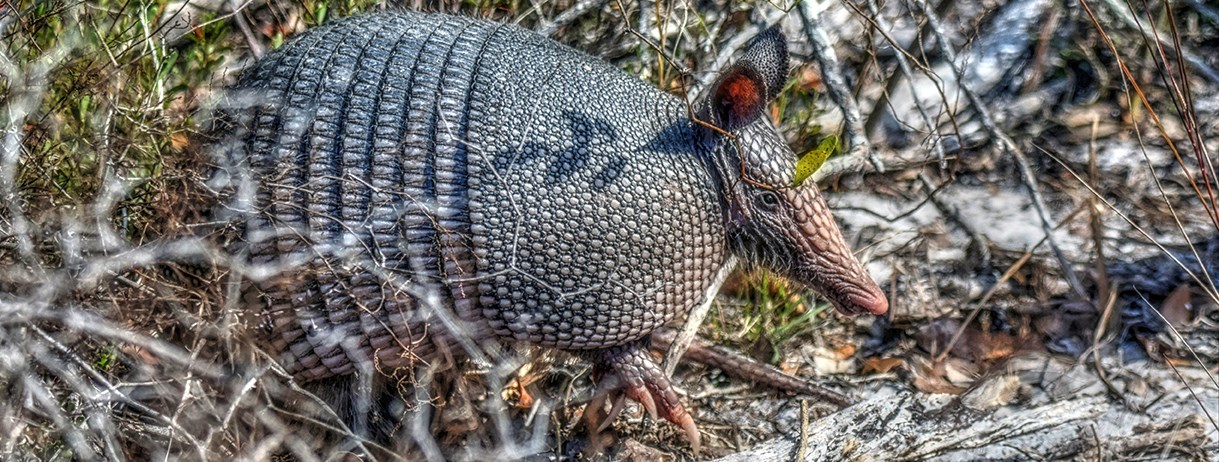
NPS Photo About the size of a large house cat, the nine-banded armadillo (Dasypus novemcinctus) is the only armadillo species which lives in the United States. Generally found in the southeastern region of the United States, these mammals can regularly be seen scurrying around at night in both Florida and Mississippi areas of Gulf Islands—including on the barrier islands. Due to their slow metabolism and general lack of body fat, armadillos rely on warm, temperate environments for survival. Their name tells you everything you need to know to identify them: Armadillo means, “little armored one” in Spanish, and nine-banded refers to the jointed bands covering the animals’ abdomen. The nine-banded armadillo can have anywhere from seven to eleven bands. They are the only mammal with natural armor, and they are covered in bony plates, called scutes. These scutes help protect them from many would-be predators. Contrary to popular belief, the nine-banded armadillo is not capable of curling completely into a ball for defense.
Despite its inability to curl into a ball, the armadillo is a mammal with many talents. They are capable of holding their breath for up to six minutes to walk across the bottom of waterways. If they decide that they would rather swim, armadillos can inflate their intestines to serve as a life jacket while crossing the water.
Armadillos have very poor eyesight. They often do not notice humans, or other animals, until they are very close. They have even been observed meandering around Fort Pickens during a cannon demonstration and seemed to hardly notice the explosion—except the smell. What the armadillos lack in visual capabilities, they make up with their keen sense of smell. They use their nose to hunt insects and locate plants for food. Their long sticky tongue is perfect for extracting ants and other insects from their tunnels. Armadillos have a negative reputation as being a carrier for leprosy, also known as Hansen’s disease. While it is true that some armadillos are natural carriers of the bacteria that causes leprosy, it is highly unlikely that a human would contract leprosy from one of these animals.
Some species of armadillos can roll into a ball for protection, but the nine-banded armadillo cannot. Instead, they have a tendency to jump straight into the air, sometimes as high as three or four feet! This tendency has unfortunate consequences when they encounter cars driving at night. The nine-banded armadillo is not endangered or threatened. In fact, their range is steadily increasing and spreading northward with the help of global warming. Do your part to help protect these awesome animals: always obey posted speed limits, keep an eye out for any wildlife crossing the road, and never harass any wild animal (yes, this includes touching and feeding the wildlife).
|
Last updated: December 11, 2019
